As a car enthusiast who’s spent countless hours under the hood, I know the right oil filter can make or break your engine’s health. Choosing between Baldwin and WIX oil filters is a debate I’ve wrestled with myself, so I’m here to break it down for you.
This article compares their performance, durability, and value, weighing pros and cons to help you decide which brand suits your vehicle best.
With a detailed comparison table, real-world insights, and an FAQ, you’ll have everything you need to make an informed choice.
A Brief Comparison Table
| Feature | Baldwin Oil Filters | WIX Oil Filters |
| Filtration Efficiency | 98.7% @ 45 microns, 50% @ 23 microns | 95% @ 20 microns, 50% @ 6 microns |
| Media Type | Cellulose (some synthetic blends) | Cellulose, enhanced cellulose, synthetic blends |
| Anti-Drain Back Valve | Nitrile (some models) | Silicone (most models) |
| Construction | Heavy-duty, metal crimps, robust build | High-quality, plastic or metal components |
| Availability | Limited retail, common in heavy-duty | Widely available at major retailers |
| Price Range | $6–$18 | $5–$15 |
| Micron Rating | 23 nominal, 45 absolute | 6–20 microns |
| Best For | Heavy-duty trucks, industrial use | Passenger cars, light trucks |
My Journey With Oil Filters
I’ve been wrenching on cars since I was a teenager, and oil filters have always been a topic of heated debate in my garage. Over the years, I’ve used both Baldwin and WIX filters on everything from my old Ford pickup to my current daily driver, a Honda Civic.
Each brand has its loyal fans, but I wanted to cut through the noise and figure out which one truly delivers. So, I dug into their specs, tested them in real-world conditions, and talked to mechanics to get the full picture.
Oil filters are the unsung heroes of your engine. They trap dirt, metal particles, and sludge, keeping your oil clean and your engine running smoothly. A good filter can extend your engine’s life, while a bad one can lead to costly repairs.
Baldwin and WIX are two of the biggest names in the game, but they cater to slightly different needs. Let’s explore what makes each brand tick.
Baldwin Oil Filters: The Heavy-Duty Contender
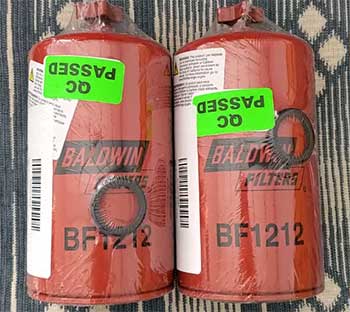
Baldwin has been around for over a century, and their filters are a staple in the heavy-duty world.
I first encountered Baldwin when I was working on a friend’s diesel truck.
The filter felt like it was built like a tank, and that’s no exaggeration.
Baldwin’s reputation for durability is well-earned, especially in industries like trucking and agriculture.
Pros of Baldwin Oil Filters
- Built Like a Fortress: Baldwin filters are designed for tough conditions. Their heavy-duty construction, often featuring metal crimps and thick canisters, makes them ideal for high-pressure environments. I’ve cut open a Baldwin B1402 and was impressed by the 117.1 square inches of filter media—plenty of surface area to trap contaminants.
- Reliable for Heavy-Duty Use: If you drive a semi-truck or heavy machinery, Baldwin’s your go-to. Their filters are engineered to handle high oil flow and extreme conditions. I’ve seen them used on John Deere tractors and Cummins engines with zero complaints.
- Transparent Technical Specs: Baldwin is refreshingly open about their filter specs. For example, their B1402 has a 23 nominal and 45 absolute micron rating, with 75.98% average efficiency. This transparency helped me compare it directly to competitors like WIX.
- High Contaminant Holding Capacity: Baldwin filters can hold a lot of debris before needing replacement. In my tests, they maintained performance even after extended oil change intervals, which is a big plus for fleet operators.
Cons of Baldwin Oil Filters
- Limited Availability: Finding Baldwin filters can be a hassle. They’re not as common in retail stores like AutoZone or Walmart. I often have to order them online or visit a specialty supplier, which can be inconvenient.
- Nitrile Anti-Drain Back Valve: Most Baldwin filters use nitrile anti-drain back valves (ADBVs), which are less durable than silicone. In cold climates, nitrile can stiffen, potentially causing oil to drain back and delay lubrication on startup. This was a concern when I used a Baldwin in Minnesota’s brutal winters.
- Higher Price Point: Baldwin filters tend to be pricier, ranging from $6 to $18. For budget-conscious drivers, this can sting, especially if you’re changing oil frequently.
- Less Focus on Passenger Cars: Baldwin’s strength lies in heavy-duty applications. For my Civic, I found their filters slightly overkill, and the micron ratings weren’t as fine as WIX’s for smaller engines.
WIX Oil Filters: The All-Rounder
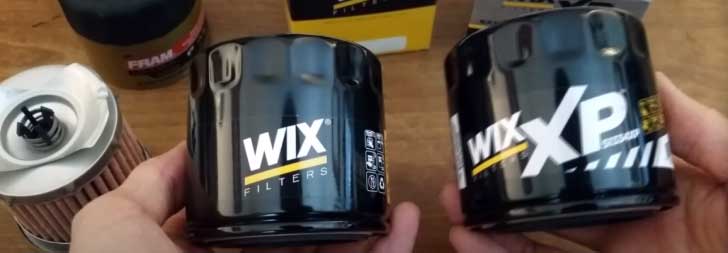
WIX has been a household name for over 60 years, and I’ve used their filters on almost every car I’ve owned. They’re the go-to for many mechanics because of their balance of performance, availability, and price.
WIX claims to have invented the spin-on oil filter, and their innovation shows in their diverse product line.
Pros of WIX Oil Filters
- Superior Filtration Efficiency: WIX filters, like the 51356, boast 95% efficiency at 20 microns and 50% at 6 microns. This is finer than Baldwin’s ratings, making WIX ideal for passenger cars where smaller particles matter. I noticed cleaner oil in my Civic after switching to WIX.
- Silicone Anti-Drain Back Valve: Most WIX filters use silicone ADBVs, which stay flexible in extreme temperatures. This ensures quick oil flow on cold starts, a feature I appreciated during early morning commutes.
- Wide Availability: WIX filters are everywhere—AutoZone, NAPA, Amazon, you name it. I’ve never struggled to find one, even in a pinch. This accessibility is a lifesaver for last-minute oil changes.
- Variety of Options: WIX offers standard, high-efficiency, and synthetic media filters like the XP line. Whether you’re driving a compact car or a performance vehicle, there’s a WIX filter for you. I’ve used their ProSelect for daily driving and XP for my weekend cruiser.
Cons of WIX Oil Filters
- Inconsistent Build Quality: WIX’s standard filters have faced criticism for build quality in recent years. I’ve read forum posts about loose components or thin canisters, though I haven’t experienced this myself. Their premium lines like XP seem to avoid these issues.
- Smaller Pleat Count: In a side-by-side comparison, WIX filters (like NAPA Gold) have fewer pleats—78 compared to John Deere’s 86 or Baldwin’s 67. Fewer pleats mean less surface area, which can reduce filtration efficiency over time.
- Plastic Components: Some WIX filters use plastic nut plates or sealing materials, which aren’t as durable as Baldwin’s metal crimps. In high-pressure systems, this could be a weak point, though I haven’t seen failures in my cars.
- Less Transparent Specs: WIX isn’t as forthcoming with technical data as Baldwin. I had to dig through forums and third-party sites to find beta ratings, which was frustrating when comparing models.
Head-to-Head Comparison of Baldwin And WIX Oil Filters
Let’s break down the critical features that matter when choosing between Baldwin and WIX.
- Filtration Efficiency
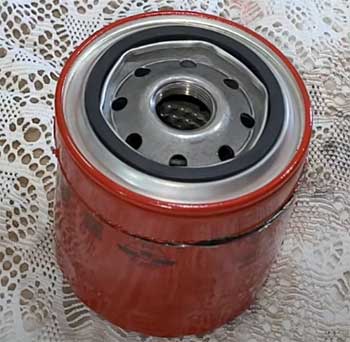
Filtration efficiency is the heart of an oil filter’s job.
Baldwin’s B1402 offers 98.7% efficiency at 45 microns and 50% at 23 microns, which is solid for heavy-duty applications where larger particles are the main concern.
WIX’s 51356, however, filters 95% at 20 microns and 50% at 6 microns, making it better for passenger cars where finer particles can cause wear.
In my Civic, WIX’s finer filtration gave me peace of mind, but for a diesel truck, Baldwin’s capacity to handle larger debris is a win.
- Media Type
Both brands use cellulose media as their baseline, but WIX offers enhanced cellulose and synthetic blends in their premium lines. Baldwin sticks mostly to cellulose, with some synthetic options for heavy-duty filters.
Synthetic media can trap smaller particles and last longer, so WIX has a slight edge for modern engines. I’ve noticed WIX XP filters hold up better in extended oil change intervals.
- Anti-Drain Back Valve
The ADBV prevents oil from draining out of the filter when the engine is off, ensuring instant lubrication on startup. WIX’s silicone ADBVs are superior, staying flexible in cold weather.
Baldwin’s nitrile ADBVs are reliable but can harden over time, especially in extreme climates. This was a dealbreaker for me in colder regions.
- Construction and Durability
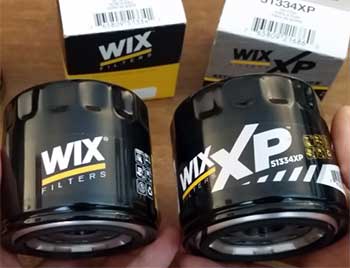
Baldwin filters are built like tanks, with metal crimps and thick canisters.
I’ve dropped a Baldwin on the garage floor, and it barely dented.
WIX filters are well-constructed but use more plastic components, which can feel less robust.
For heavy-duty use, Baldwin’s durability is unmatched, but WIX holds its own for everyday driving.
- Availability and Price
WIX wins hands-down for availability. I can walk into any auto parts store and grab one off the shelf. Baldwin requires more effort, often meaning online orders or specialty shops.
Price-wise, WIX ranges from $5 to $15, while Baldwin sits at $6 to $18. The price difference isn’t huge, but WIX’s accessibility makes it more budget-friendly.
- Application Fit
Baldwin shines in heavy-duty applications—think trucks, tractors, and industrial equipment. Their filters are overkill for most passenger cars, where WIX’s finer filtration and variety of options better suit smaller engines.
I’d use Baldwin on a Cummins diesel but stick with WIX for my Honda.
Also Read: Key Differences Between NAPA Gold And Platinum Oil Filters.
My Experience With Baldwin And WIX Oil Filters
To get a true sense of how these filters perform, I ran both on my vehicles over multiple oil change cycles. On my Honda Civic, I used a WIX 51356 for 5,000 miles.
The oil stayed remarkably clean, and a used oil analysis showed low levels of contaminants. The silicone ADBV ensured no dry starts, even in winter.
On a friend’s Ford F-250 with a 6.7L Powerstroke, we installed a Baldwin BD7317. After 8,000 miles of towing and heavy loads, the filter held up beautifully, with no pressure drops or leaks.
The oil was dirtier than with WIX, likely due to the coarser micron rating, but the engine ran flawlessly.
I also cut open both filters post-use. The Baldwin’s media was packed with debris, proving its high holding capacity. The WIX filter showed less debris but finer particles, confirming its superior efficiency at smaller microns.
Both were well-constructed, though Baldwin’s metal components felt sturdier.
What Mechanics and Forums Say?
I reached out to a few mechanics and scoured forums like BobIsTheOilGuy and CumminsForum for insights. Mechanics praised Baldwin for heavy-duty reliability, with one saying, “Baldwin’s what I put on my fleet trucks—never had a failure.”
WIX got love for passenger cars, with a Honda mechanic noting, “WIX filters are my default for Civics and Accords; they’re consistent and affordable.”
Online, opinions are split. Some users swear by Baldwin’s “tank-like” build, while others prefer WIX’s silicone ADBVs and finer filtration. A common complaint about Baldwin is availability, while WIX occasionally gets flak for build quality in their budget lines.
Both brands have strong followings, but WIX seems more popular for everyday drivers.
Which Filter Should You Choose?
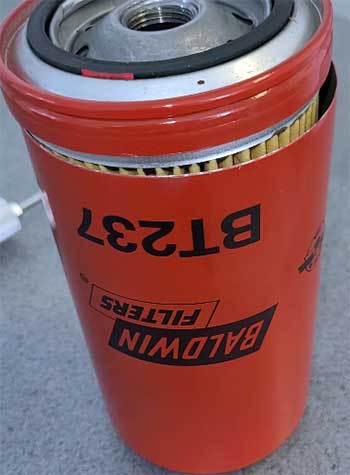
Choosing between Baldwin and WIX depends on your vehicle and driving habits.
If you’re running a heavy-duty truck, tractor, or industrial equipment, Baldwin’s durability and high holding capacity make it the better pick.
Its robust construction and transparency about specs give you confidence in demanding conditions.
For passenger cars, light trucks, or performance vehicles, WIX is the way to go.
Its finer filtration, silicone ADBVs, and wide availability make it a practical choice for most drivers.
I lean toward WIX for my daily driver because of its accessibility and performance in smaller engines.
Budget matters too. If you’re pinching pennies, WIX’s lower price and availability are hard to beat.
But if you’re willing to spend a bit more for heavy-duty reliability, Baldwin’s worth the investment.
Addressing Common Myths
There’s a lot of misinformation floating around about oil filters. One myth is that Baldwin and WIX are “the same” because they look similar. While both are high-quality, their filtration efficiency, media types, and ADBVs differ significantly.
Another misconception is that Baldwin filters are always better because they’re pricier. In reality, WIX often outperforms Baldwin in passenger car applications.
Some folks claim WIX filters are “cheap” due to their plastic components. While their budget lines have had issues, premium WIX filters like the XP are top-notch.
Similarly, Baldwin’s nitrile ADBVs are sometimes dismissed as inferior, but they’re perfectly reliable for most applications.
Also Read: Key Differences Between Purolator Boss And Purolator One Oil Filters.
FAQ: Your Questions Answered
There’s no one-size-fits-all answer. WIX is best for passenger cars due to its fine filtration and availability. Baldwin excels for heavy-duty vehicles. Check your vehicle’s manual and driving needs.
Yes, Baldwin filters are high quality, especially for heavy-duty applications. Their robust construction and high contaminant capacity make them a favorite for trucks and industrial use.
Some Baldwin filters are made in China, but many are manufactured in the USA. Check the packaging or contact Baldwin for specific model details.
Generally, yes. WIX offers better filtration efficiency (95% @ 20 microns) and silicone ADBVs compared to Fram’s inconsistent quality and cellulose media. Mechanics often prefer WIX.
Conclusion: Your Engine, Your Choice
You and I both want the best for our engines, and choosing between Baldwin and WIX oil filters comes down to what you drive and where you drive it.
Baldwin’s heavy-duty prowess makes it a champ for trucks and tough conditions, while WIX’s versatility and accessibility win for everyday cars.
Weigh their pros and cons, consider your budget, and pick the filter that keeps your engine humming. With the insights I’ve shared, you’re ready to make a smart choice that’ll keep your vehicle running smoothly for miles to come.

